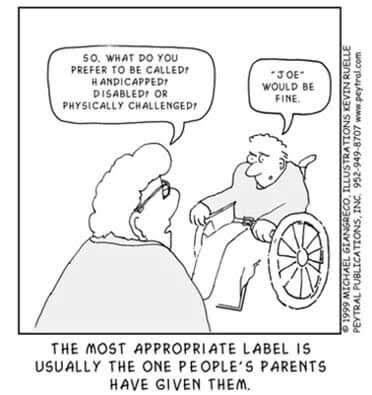Share
Image

Person-first language puts the person first.
• Say…"Person(s)," "people," "person I support," and "person with an intellectual disability" instead of "individual," "consumer" or "client."
• Say…"A person who needs more support or less support" instead of "low functioning" or "high functioning."
• Say…"A person who does not use words to communicate" instead of "non-verbal."
• Say…"A person who is communicating through his or her behavior, which is running or biting" instead of labeling a person as a "runner" or "biter," etc.
• Say…"A person who uses a wheelchair" instead of "wheelchair-bound."
• Say…"A person with autism" instead of "autistic person."
• Say…"A person with Down syndrome" instead of "the Downs person."
The people we support are not our possessions.
• Say…"The people I/we support and work with," instead of "my guys" or "our guys."
The place/location of your job is where people you support work or live.
• Say…"The home where the people I support live" or "the location where the people I support work or attend day program," instead of "my house" or "my program."
And remember…
• DSP is an acronym for "Direct Support Professional" not "Direct Service Professional."
